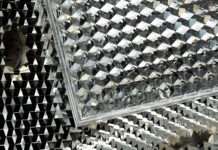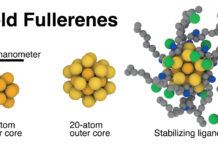
In the world of Harry Potter, invisibility cloaks are made from the hair of a magical creature called a Demiguise. In our world, they may one day be made from metamaterials.
Metamaterials are artificially engineered materials. Scientists create them by combining multiple elements from composite materials such as metal and dielectric. The result is an entirely new material with properties not found in nature.
To achieve invisibility, a metamaterial needs to possess certain optical properties. Specifically, scientists would have to design the material so that they could control how light moves around an object without being reflected or absorbed. This design is possible, but it would take just the right material with just the right structure.
There are hundreds of thousands of potential material structures with optical responses that fall somewhere along the optical spectrum. Sifting through them to find a new material design has traditionally taken hours or even days.
Now, Northeastern professor Yongmin Liu has developed a new method for quickly discovering materials that have desirable qualities, such as invisibility. In a paper published recently in ACS Nano, Liu and his co-authors describe a machine learning algorithm they developed and trained to identify new metamaterial structures. The new method is much faster and more accurate than previous approaches, paving the way for engineers to design next-generation materials.
The algorithm Liu and his team built was trained with a data set of 30,000 different samples, each representing a specific relationship between a metamaterial structure and corresponding optical property. Once the algorithm learned those relationships, it was able to predict new ones.
“Searching through all possible parameter combinations for materials is nearly impossible. By introducing artificial intelligence to the metamaterial design, I believe the potential of metamaterials will be fully realized,” said Shuang Zhang, a professor of physics at the University of Birmingham. “Prof. Liu’s research points to a new research direction which will be followed by many groups in this field.”
Read more: Harry Potter had magic. We have metamaterials.
thumbnail courtesy of northeastern.edu














